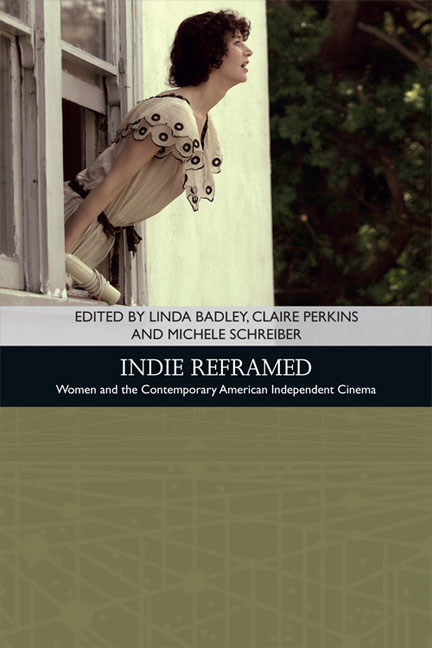2 - Killer Feminism
Published online by Cambridge University Press: 10 November 2020
Summary
In coverage of independent film in both trade and independent outlets in the US, words like ‘powerhouse’ and ‘stalwart’ regularly appear in conjunction with the twenty-year-old production house Killer Films (Jones 2008). The aggressive attitude signalled in the company name is reinforced by co-founder Christine Vachon's persona. A lifelong New Yorker, she can be intimidating – habitually clad in black jeans, T-shirt, and combat boots, Blackberry at the ready. She is also a beguiling raconteur with a keen sense of irony about her standing – she jokes that there are people working in her office who weren't even born when Killer started up. Missing from the standard Killer profile is the explicit invocation of feminism, even of the ‘lean in’ sort that the mainstream press tolerates in reportage of female executives and entrepreneurs. While Vachon and her partner Pamela Koffler are often included in tributes to prominent women in film, such as Variety's annual New York Women's Impact Report (Variety staff 2015), the company narrative is identified most closely with the emergence of independent queer cinema and especially with Vachon's close collaboration with auteur Todd Haynes, whom she met at Brown University in the early 1980s. Advocacy of women filmmakers for its own sake is not a major strain of Vachon's self-narration in her two autobiographical books on indie producing, Shooting to Kill (1998) and A Killer Life (2007), which deal pragmatically and even-handedly with the problems plaguing low-budget productions helmed by men and women. (If the villains tend to be men – sales agents, talent managers, Harvey Weinstein – it is an apt characterisation of an independent film scene defined by male posturing and agon.) Is Vachon's toughness defensive, a disavowal of female (market?) weakness and/or feminist debt? I’ll take it rather as butch swagger and explore the feminist forcefield surrounding Killer Films and its principals, connecting the production house to histories of feminist critique, aesthetic production, political affiliation and cultural work, while remarking on its position within independent film.
Four dimensions of Killer's relation to feminism are considered here: 1) New York City independent film culture, where women have played key roles historically; 2) the emergence of lesbian feature filmmaking in the 1990s; 3) collaboration within the company, with directors, and with other independent film entities, and 4) the shaping of contemporary women's cinema through the work of Todd Haynes.
- Type
- Chapter
- Information
- Indie ReframedWomen's Filmmaking and Contemporary American Independent Cinema, pp. 36 - 53Publisher: Edinburgh University PressPrint publication year: 2017



